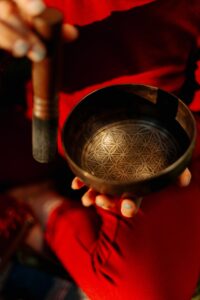



Ayurveda and Traditional Chinese Medicine (TCM) are two of
the world’s oldest and most comprehensive systems of alternative and holistic
medicine. Rooted in centuries-old traditions, these practices offer a unique
perspective on health and wellness. In this post, we’ll explore what Ayurveda
and Traditional Chinese Medicine are, how they work, and what sets them apart.
Ayurveda: Balancing the Body, Mind, and Spirit
What is Ayurveda?
Ayurveda, which translates to “the science of
life,” is a holistic system of medicine that originated in ancient India.
It encompasses a wide range of practices and philosophies that aim to harmonize
the body, mind, and spirit. Ayurveda views health as a state of balance, while
disease is seen as an imbalance within the individual.
How Does Ayurveda Work?
Ayurveda is based on several key principles:
1. Doshas: Ayurveda categorizes individuals into three
primary constitutional types, or doshas: Vata, Pitta, and Kapha. These doshas
represent various combinations of the five elements (earth, water, fire, air,
and ether) and determine an individual’s physical, mental, and emotional
characteristics.
2. Balancing Act: Ayurvedic practitioners assess an
individual’s dosha constitution and any imbalances within it. Treatment often
involves balancing these doshas through dietary changes, herbal remedies, yoga,
meditation, and lifestyle modifications.
3. Herbal Medicine: Ayurveda utilizes a wide range of herbal
formulations to address specific health concerns. These remedies are carefully
selected to harmonize an individual’s constitution and alleviate imbalances.
4. Mind-Body Connection: Ayurveda recognizes the intricate
connection between the mind and the body. Emotions and mental states are
considered vital components of overall health and are addressed through various
therapeutic practices.
5. Individualized Approach: Ayurveda is highly
individualized, with treatments tailored to each person’s unique constitution
and needs.
Traditional Chinese Medicine: Balancing Qi and Harmony
What is Traditional Chinese Medicine?
Traditional Chinese Medicine (TCM) is an ancient system of
healthcare that has been practiced for over 2,000 years in China. It is based
on the concepts of Yin and Yang, the Five Elements (Wood, Fire, Earth, Metal,
Water), and the flow of Qi (pronounced “chee”), or vital energy,
through the body’s meridians.
How Does Traditional Chinese Medicine Work?
TCM operates on several key principles:
1. Balance of Yin and Yang: TCM believes that health is
achieved when the opposing forces of Yin (feminine, dark, cold) and Yang
(masculine, light, hot) are in balance within the body.
2. Qi Flow: TCM centres on the concept of Qi, the vital life
energy that flows through the body along a network of meridians. Blockages or
imbalances in the flow of Qi can lead to illness, pain, or emotional distress.
3. Five Elements: TCM associates each element with different
organs, emotions, and body functions. The Five Elements theory helps
practitioners diagnose imbalances and select appropriate treatments.
4. Acupuncture and Herbal Medicine: TCM uses acupuncture, a
practice involving the insertion of fine needles into specific points on the
body, to stimulate Qi flow and restore balance. Herbal remedies are also
commonly prescribed.
5. Diet and Lifestyle: TCM places great emphasis on the
impact of diet and lifestyle on health. Practitioners often recommend dietary
changes and exercise, such as Tai Chi, to support well-being.
6. Individualized Diagnosis: TCM practitioners diagnose an
individual’s pattern of disharmony and tailor treatments accordingly. This
approach ensures that therapies address the root cause of health issues.
What Sets Them Apart?
While both Ayurveda and TCM are holistic and ancient systems
of medicine that seek to restore balance, they differ in their cultural roots
and philosophical foundations. Ayurveda originates from India and places a
strong emphasis on dosha constitution, while TCM hails from China and focuses
on concepts like Yin and Yang, Five Elements, and Qi flow. Each system offers
unique herbal remedies, therapies, and lifestyle recommendations based on its
own principles.
In conclusion, Ayurveda and Traditional Chinese Medicine are
holistic systems of medicine deeply rooted in ancient wisdom. They offer a
profound understanding of the body-mind-spirit connection and aim to restore
balance and harmony for optimal health. Whether you are drawn to the
dosha-based approach of Ayurveda or the Qi-focused philosophy of TCM, both
systems provide valuable insights into holistic wellness and the art of
healing.